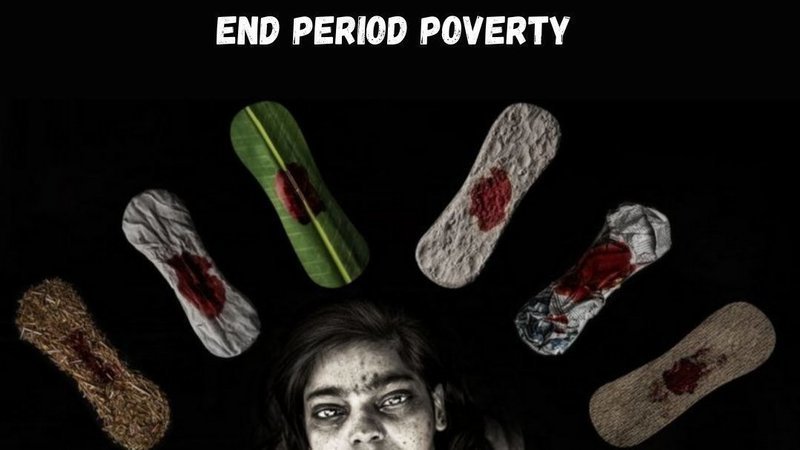Educating women about menstrual hygiene

Educating women about menstrual hygiene
Why this petition matters
WHAT ARE WE ASKING FOR?:
To End Period Poverty through Informed Choice.
1. To make an informed choice in menstrual hygiene education mandatory: When a menstruator has access to correct and relevant information about all menstrual hygiene products available, both disposable and reusable, this includes information about each product's health, economic and environmental implications, along with correct practices. Only then can they make an informed choice.
2. To make menstrual hygiene education gender-inclusive in schools: Educating students of all gender about menstrual hygiene management and reproductive health in schools is necessary to dismantle the culture of shame and misinformation surrounding it. Only if this education is open and gender-inclusive, we will be able to achieve a society that encourages safe and sustainable menstruation with dignity.
3. To extend government schemes to include eco-friendly, reusable menstrual hygiene products: The use of sanitary pads and other disposable products depends upon the supply as well as regular procurement. In case of emergencies, such as the recent lockdown as well as other calamities, there can be a disruption in supply. Moreover, these products adversely impact the environment. It can also be difficult to regularly purchase or procure disposable products depending upon the socio-economic and geographic contexts. To truly end period poverty, it is necessary that all government initiatives and mission guidelines of various governmental campaigns and schemes are amended. They should focus on sustainable products such as menstrual cups. The distribution of plastic products (disposable pads) in schools should be reduced and the distribution schemes should include sustainable alternatives like menstrual cups and cloth pads.
WHY SHOULD YOU SIGN THIS PETITION?:
1. As much as 52% of girls in India do not have pre-menarche awareness.
2. Even today the social norms and stigma surrounding menstruation lead to over 2 crore girls dropping out of school as they start menstruating
3. Further, approximately 7 crore people in India live in extreme poverty on less than 140 rupees per day. Hence for low-income households, the cost of sanitary pads is often unattainable.
4. A lack of awareness on menstrual hygiene among men results in women not being open about menstrual hygiene management and forced to adjust to cultural taboos and unhygienic practices.
5. In India close to 1 crore kgs of menstrual waste is generated each year. It is estimated that if around 121 million girls and women use around 8 disposable pads a month, the number of pads disposed of annually would be around 1200 crore in India.
6. One pad is equal to 4 plastic bags and each pad takes 500-800 years to decompose. Menstrual waste management has become another pressing issue to be addressed immediately.
YOU can help us take one step towards ENDING PERIOD POVERTY by signing this petition TODAY.
READ MORE:
In India, women and girls constitute close to half of the population yet the gender disparities in the country remain a critical issue. These issues affect the education, health, work, and equality of women. One such area of concern is the lack of information, awareness, and facilities to allow girls and women to menstruate with dignity. Despite the efforts to reinforce the availability of menstrual hygiene products, the National Family Health Survey 2015-2016 estimated that from 336 million women only 36% have access to sanitary napkins. There is still a huge number of women who do not have regular access to sanitary products.
Further, the social norms and stigma surrounding menstruation lead to over 2 crore girls dropping out of school as they start menstruating. The lack of information and education about correct practices negatively affect the sexual and reproductive health of adolescent girls. Due to the shame associated with periods, parents, teachers, and sometimes even healthcare workers hesitate to talk about the same. As a result, as much as 52% of girls in India do not have pre-menarche awareness.
Even though the government has made efforts to change the menstrual hygiene landscape in India, even today education regarding menstrual hygiene is not only insufficient but also limited to only girls in schools. Further, education on menstrual hygiene is not mandated. Schools have programs and teachers are instructed to educate the students but they are rarely trained to teach it and are often embarrassed.
In many low-income and conservative households, in both rural and urban areas, the power of financial matters and decision-making remains in the hands of men. A lack of awareness on menstrual hygiene among men results in women not being open about menstrual hygiene management and forced to adjust to cultural taboos and unhygienic practices.
To add to the problem, the distribution of low cost or free menstrual products is limited to disposable pads. These pads are majorly made of plastic, with each pad equaling about 4 plastic bags. This leads to an adverse impact on the environment due to the toxicity of the substances used in making the pads.
It is estimated that if around 121 million girls and women use around 8 disposable pads a month, the number of pads disposed of annually would be around 1200 crore in India. Which is close to 1 crore kgs of menstrual waste generated each year. If each pad takes 500-800 years to decompose, therefore menstrual waste management has become another pressing issue to be addressed immediately.
Further, approximately 7 crore people in India live in extreme poverty on less than 140 rupees per day. Hence for low-income households, the cost of sanitary pads is often unattainable. This was highlighted during the COVID-19 lockdown. Since most girls from low-income households rely on their schools for access to sanitary napkins, due to the continued closure of schools their supply stopped abruptly. This confirmed that the distribution of disposable pads is not sustainable and does not provide a resilient solution to safe menstrual hygiene management.